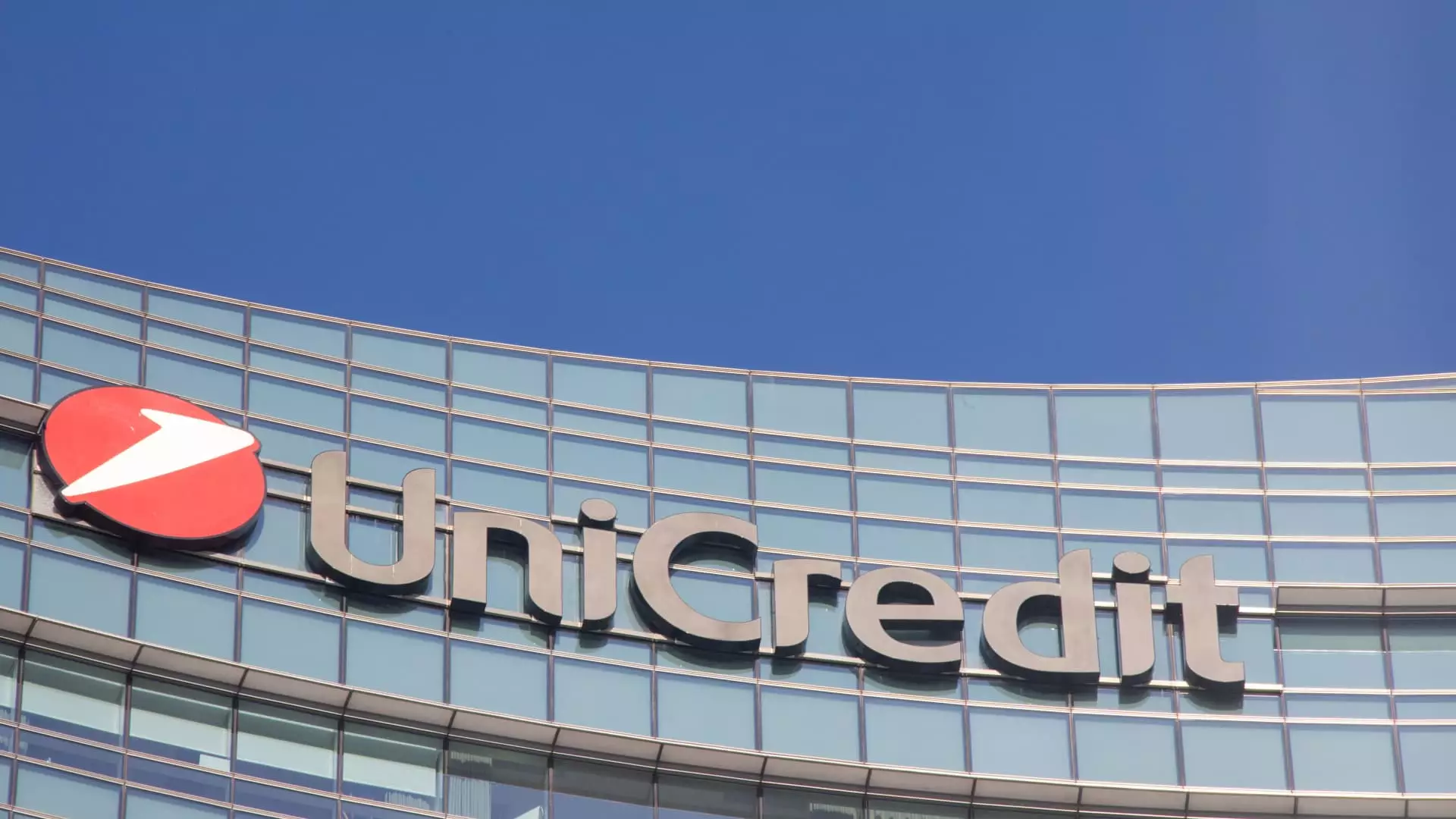Universally recognized as one of Europe’s most significant banking institutions, UniCredit has made headlines with its ambitious proposal to acquire Banco BPM for an estimated €10 billion (approximately $10.5 billion). This bold attempt, unveiled on a Monday morning, is strategically positioned to realign the competitive landscape of Italian banking. The offer of €6.657 per share constitutes a marginal premium above Friday’s closure price, representing not just an investment but a calculated effort by UniCredit to fortify its presence within the European financial sector.
The nature of this acquisition—classified as an all-stock transaction—inevitably raises questions about how such a merger could reshape the operational ethos and market strategies of the combined entity. UniCredit’s claim that this venture reinforces its aspirations as a preeminent pan-European banking group indicates a progressive strategy aimed at broadening its financial offerings and geographical reach. Notably, this announcement comes in conjunction with a series of high-stakes merger discussions that have pervaded the European banking landscape recently, revealing a trend towards consolidation that many analysts consider overdue.
The timeline preceding UniCredit’s offer reflects a broader narrative of consolidation throughout Europe. The financial services industry has often been likened to a game of chess, where strategic maneuvers lead to pivotal shifts in power dynamics. Among these calculated moves, UniCredit’s decision to amplify its stake in Commerzbank to 21%, with intentions to escalate it further to 29.9%, is particularly noteworthy. However, it is important to acknowledge the German government’s reticence towards foreign acquisitions, stressing a typical struggle between national interests and global market dynamics. Chancellor Olaf Scholz’s reservations about “unfriendly attacks” in acquisitions hold profound ramifications for the future attractiveness of such cross-border deals.
Amidst these developments, Banco BPM has not remained idle. Just prior to UniCredit’s overture, it sought to expand its own horizons through a proposed €1.6 billion acquisition of asset manager Anima. Additionally, the bank’s proactive approach saw it acquire a 5% stake in the state-owned Monte dei Paschi di Siena (MPS). This zigzag of initiatives illustrates Banco BPM’s desire to strengthen its position, making it a potent opportunity for UniCredit, should the deal progress.
Financial Performance: A Promising Horizon
The context of financial performance adds another layer to this narrative. UniCredit recently announced an 8% year-on-year increase in quarterly net profits, surpassing expectations with a figure of €2.5 billion ($2.25 billion). Furthermore, the institution raised its yearly profitability outlook to over €9 billion, highlighting an impressive stock performance, boasting a 55% uptick this year alone. This strong financial footing not only emboldens UniCredit’s ambitions but also augments investor confidence in what could be one of Italy’s indicative alliances in banking.
UniCredit’s proposed acquisition of Banco BPM epitomizes the ongoing evolution within the European banking arena. As these two titans potentially join forces, their union could redefine competitive dynamics and reshape the operational landscape in Italy and beyond, advocating for a more consolidated and resilient banking future.

Leave a Reply